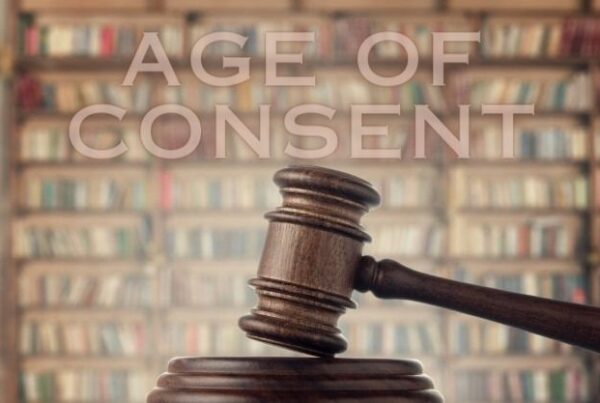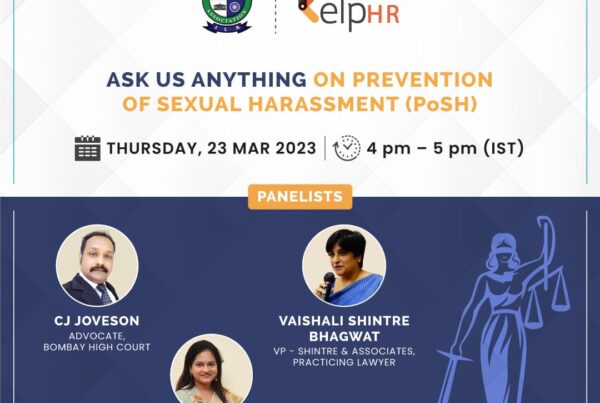*names of persons and locations are changed to protect identity*
Aarti Javdekar was working as an Associate in a leading manufacturing company in Bangalore. As part of her job she had to travel with her reporting manager, Arun to Mumbai to negotiate a deal with a prospective supplier. Aarti and Arun checked into the hotel in Mumbai in the evening where the bookings were made by the Company. Arun then excused himself saying that he will not join Aarti for dinner in the dining hall as he has a headache and wanted to retire early . They parted saying they will meet the next morning for breakfast. Around 10pm Aarti receives a call from Arun. Arun says “ Aarti I am really stressed about tomorrow’s meeting and we need to discuss our presentation and strategy. Why don’t you come to my room and we will finalise the presentation. This headache is also killing me , maybe a discussion about tomorrows strategy will make me feel better .” Aarti knew that the meeting scheduled the next day was critical and decides to go to Arun’s room . After their discussion related to work, much to the surprise of Aarti, Arun requests Aarti to give him a head rub to ease his throbbing head. Aarti though a bit hesitant could not say no to her boss and gives him a headrub and then leaves the room . However, very disturbed by the events that took place last evening, Aarti files a complaint of sexual harassment against Arun before the internal committee.
I give this case study during most of my training programs on sexual harassment and surprisingly the first reaction of both men and women in the audience is that Aarti should not have gone to Arun’s room or Aarti should have said no. These reactions speak a lot about our own mindsets of gender roles and how a certain gender is expected to behave. It was ‘ok’ for the man Arun to ask Aarti to come to his room late at night while they could have met in the hotel lobby, it was also ok for him to ask for a favour. However it was not ok for Aarti even to go to his hotel room. This unfair bias is deep rooted amongst all of us in relation with a certain expected behavior from a gender.
In my work related to sexual abuse and exploitation of women and children including domestic violence as a lawyer, I have come across a multitude of cases which exposed me to issues and problems faced by women which I had never imagined I also realized that the term sexual harassment meant different things to people from opposite genders or from different age groups or from different social-economic backgrounds. Every case posed a new challenge, forced me to think more objectively and in all fairness and every time reminded me that each of us comes with a baggage of some preconceived notions about sexuality, gender identity, gender roles and stereotyping.
Companies and corporate struggle with issues relating to sexual harassment at workplace and as a society we are still very ill equipped to handle issues relating to gender identity, gender expression and sexuality and most of do not even know its clear meaning and definition .
Though the Constitution has guaranteed the right of equality to both men and women , the reality is far from this. The worrying aspect is that for various social and economic reasons, women ( even the most educated or coming from a creamy layer) do not claim or assert this right of equality fearing to be branded as aggressive or a feminist ! Being assertive is not a virtue for women. It challenges the age-old image of a woman that is so deeply engraved in our minds for generations and the same is for men. When a mixed audience of men and women are asked to just think of words that come to their minds when they think of a woman and a man, invariably and predictably people say words like ‘mother, shy, polite , nesting , loving & caring..’ for women and ‘aggressive, strong, decision maker, egoistic …’ when it comes to a man. This gender stereotyping clearly indicates a woman in a more submissive role vis-à-vis a man thus establishing the hierarchical mindset where the man is in authority. Most commonly in cases of domestic violence, it is seen that woman who challenges this authority of the man is subjected to domestic abuse including sexual abuse or assault. Gender bias and a patriarchal mindset is the root cause of sexual abuse and harassment suffered by women. As in the case of gang-rape of a social worker in Rajasthan, when the men folk in the village gave her an ultimatum to leave the village as they did not approve of the women empowerment work done by her and threated her with a punishment if she did not leave on a stipulated date. The punishment was gang rape in broad daylight to ‘teach her a lesson ‘ and demonstrate that men are superior and in control than women. It is then the Supreme Court took notice that women are vulnerable to sexual harassment and workplace and that employers have to take definite steps to provide a secure and safe working environment to her and protect her against sexual harassment.
It now important for all of us to have a relook at the subconscious biases in our minds and how we have assigned certain roles to genders. Any deviation from the role causes confusion and denial leading to disputes and violence thus also affecting the family institutions and well being. But with more and more women challenging stereotypes, we have to be more open minded and accepting about this change ‘ where women can be like men and men can be like women ‘. Each is just a human being with a fundamental right of life and a fundamental right of choice.
In the case of Aarti and Arun, the internal inquiry conducted by the Internal Complaints Committee constituted under the Sexual Harassment Act ( Protection, Prevention and Redressal) after giving due consideration to the statements recorded and other evidence on record held Arun guilty of sexual harassment and was terminated as he was also a senior of Aarti and was in a position of authority and influence which cast a greater duty on Arun to behave appropriately.
Vaishali Bhagwat , Advocate
The author is a practicing civil and cyber lawyer with a special focus on violence against women and children




